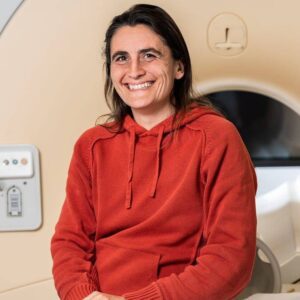
How do we learn from others to avoid danger?
4 August 2023

4 August 2023
Frederic Michon has been awarded an NWO Veni grant, which he will use to investigate how our brain can assess what is dangerous by learning from others.
Imagine: you see someone distressfully slipping off of a slippery bridge. Chances are high that you wouldn’t dare to cross. Learning from observation can help you avoid dangers and can thus be life changing. From a young age on, you learn about the environment from observing what happens to others around you. However, we still know little about the mechanism behind this process and how these experiences are integrated into our memory. This question will be further examined in a new project by the Social Brain Lab.
Frederic Michon has received an NWO Veni grant, which he will use to investigate how activity in the hippocampus (a brain circuit involved in memory and emotion processing) is essential for our ability to learn from from observing what happens to others, both in humans and rodents. Researchers already know quite a bit about how our memory works, and they also know how our brain processes the emotions of others. But the combination of these areas has not been studied before.
Convergence of information
Frederic: ‘We know that the hippocampus is a key structure for memory of our own experiences, but also for emotional processing. Our hypothesis is that this is one of the places where information about what happens to others (falling) and where it happens (the slippery bridge) are combined. To test this, we want to use an approach where we compare the activity of the hippocampus in rats with that in humans.’
‘On the one hand, studying rats learning that an environment is dangerous by observing another being in distress in it, will enable to ask in detail how the activity of the hippocampus may contribute to this form of memory, and if it really is necessary for it. On the other hand, to test if the observations made in rats also apply to us, we want to conduct similar research in humans: we will make use of virtual reality to compare what happens in our hippocampus when we learn that crossing a bridge is dangerous after witnessing someone falling from it.’
Read more about the Veni grant here and keep an eye on our website for the first results of the study.


The Friends Foundation facilitates groundbreaking brain research. You can help us with that.
Support our work